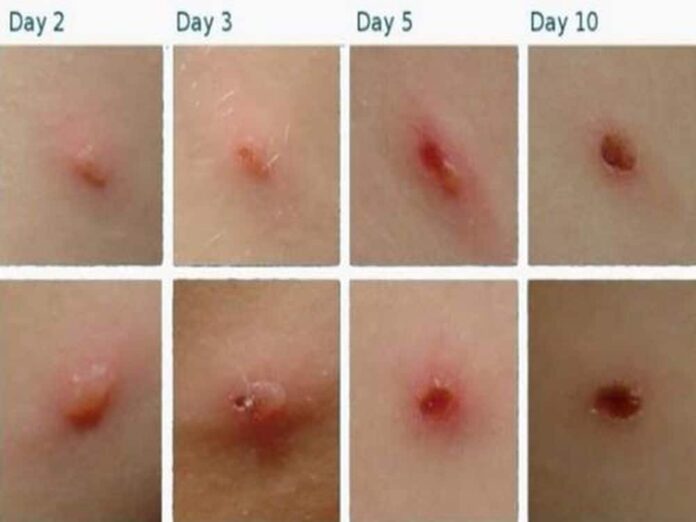Chickenpox is a contagious disease caused by the varicella-zoster virus, typically characterized by a progression of distinct stages. Understanding these stages can help in identifying and managing the illness effectively. Here’s a detailed breakdown:
1. Incubation Period (7-21 Days)
- What happens?
The virus enters the body and multiplies, but there are no visible symptoms during this time. - Symptoms:
None; the person feels normal but can become contagious a couple of days before symptoms appear.
2. Prodromal Stage (1-2 Days)
- What happens?
Early symptoms begin to appear as the immune system reacts to the infection. - Symptoms:
- Mild fever (100°F to 102°F or higher in some cases).
- Fatigue and weakness.
- Loss of appetite.
- Headache or body aches.
- In young children, this stage might be mild or absent.
3. Rash Appearance (Day 1 of Rash Onset)
- What happens?
The classic chickenpox rash begins to develop. - Symptoms:
- Small, red spots appear on the face, chest, back, and eventually spread to the rest of the body.
- Itching can range from mild to severe.
- Fever may persist or worsen as the rash develops.
4. Rash Progression (Over 4-7 Days)
The rash evolves in three stages:
- Macules: Flat, red spots.
- Papules: Raised, red bumps.
- Vesicles: Fluid-filled blisters that may appear cloudy.
- What happens next?
- The blisters eventually burst and form scabs.
- New spots can continue to appear for several days, so all three stages of the rash might be visible simultaneously.
5. Crusting and Healing Stage (1-2 Weeks)
- What happens?
The blisters dry up, scab over, and heal. - Symptoms:
- Scabs can be itchy but should not be picked to avoid scarring.
- Most people are no longer contagious once all the blisters have scabbed over.
6. Recovery and Immunity
- What happens?
The body clears the virus, and the individual recovers. - Outcome:
- Once recovered, most people have lifelong immunity to chickenpox.
- The virus remains dormant in the body and may reactivate later as shingles (herpes zoster), especially in older adults or those with weakened immune systems.
Key Points for Management:
- Relief from itching: Calamine lotion, oatmeal baths, or antihistamines can help.
- Prevent complications: Avoid scratching to prevent bacterial infections.
- Vaccination: The chickenpox vaccine significantly reduces the risk and severity of the disease.
If symptoms are severe, involve complications (e.g., difficulty breathing, confusion, high fever lasting more than 4 days), or occur in high-risk individuals (e.g., pregnant women, newborns, or immunocompromised persons), seek medical attention promptly.



